Therapeutic Services:
I am a Registered, Certified Play and Creative Arts Therapist. I am registered with PTUK (Play Therapy UK) and BACP (the British Association of Counsellors and Psychotherapists). I am also a qualified Clinical Supervisor (PTUK).
Supervision
I offer creative Clinical Supervision to Play and Creative Arts Therapists, counsellors and therapists, school staff, trainees and other adults working with children. I can facilitate individual or group supervision to suit your or your business’s needs.
Clinical Supervision aids therapists, teachers and other adults to ensure that their clients/pupils and the therapist/adult are kept safe through reflective and ethical practice. Through creative supervision parallel process, blind spots, transference and counter transference can be uncovered to ensure that clients/pupils feel safe, heard, valued and are attuned to with insight, congruence, curiosity and compassion.
As your supervisor I will provide a safe, confidential space to explore your and your clients’/pupils’ experiences and process, to allow ethical and professional growth and decision making. You will further develop as autonomous and ethical practitioners, with greater empathy and understanding for yourself and your clients.
Supervising is a privilege. I enjoy supporting adults to understand the children they work with and their responses to those children, to recognise any difficulties in the relationship and the behaviours which can cause friction or communication difficulties between you.
Through creative methods (using role play, art, sand and talking) we can explore and deepen our understanding and grow the capacity to connect and maintain relationships authentically and with attuned compassion which allows children to trust and to thrive.
Supervision also helps to maintains professional boundaries and can help to guard against vicarious trauma, overload and burnout.
Please contact me to discuss.
What is Play and Creative Arts Therapy?
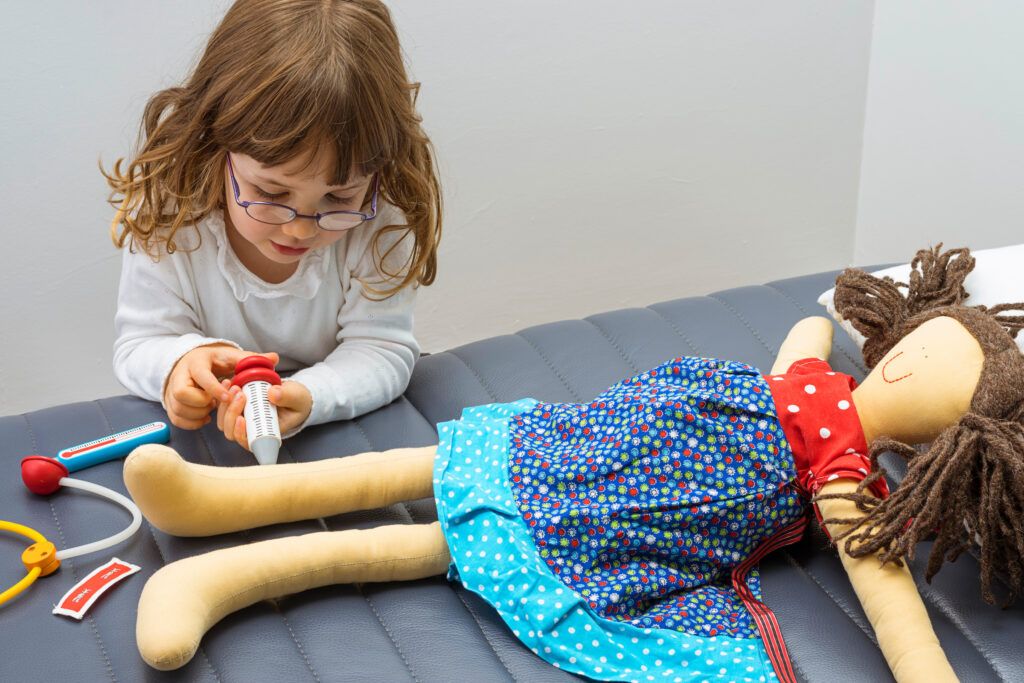
Play and Creative Arts Therapy enables children from 3 – 103 to express their thoughts, feelings and worries. They don’t need to be able to explain their worries or problems, they don’t need to speak at all if they don’t want to. They can choose from a variety of toys and art materials to express themselves creatively and through play. Play is the child’s universal language and the way they communicate even before they can talk. Play accesses every part of the brain and is more powerful than talking alone. Play is the way that children learn and begin to understand the world around them; play is the way they develop logic, communication skills and a sense of their potential.
Play therapy gives a child the power to explore their tricky emotions, memories and relationships in a non-threatening way. They are given the permission to be as loud as they want to or as quiet as they want to, to move or to be still – to do whatever they need, in that moment. I will join them in their exuberance or their serenity; my reflection gives them insight and encourages them to examine the causes of behaviour patterns. Through play they can explore more positive ways of thinking and being, new responses and new views of themselves and others. Over time, these new ways become the new normal.
Children can choose from a range of toys and art materials including:
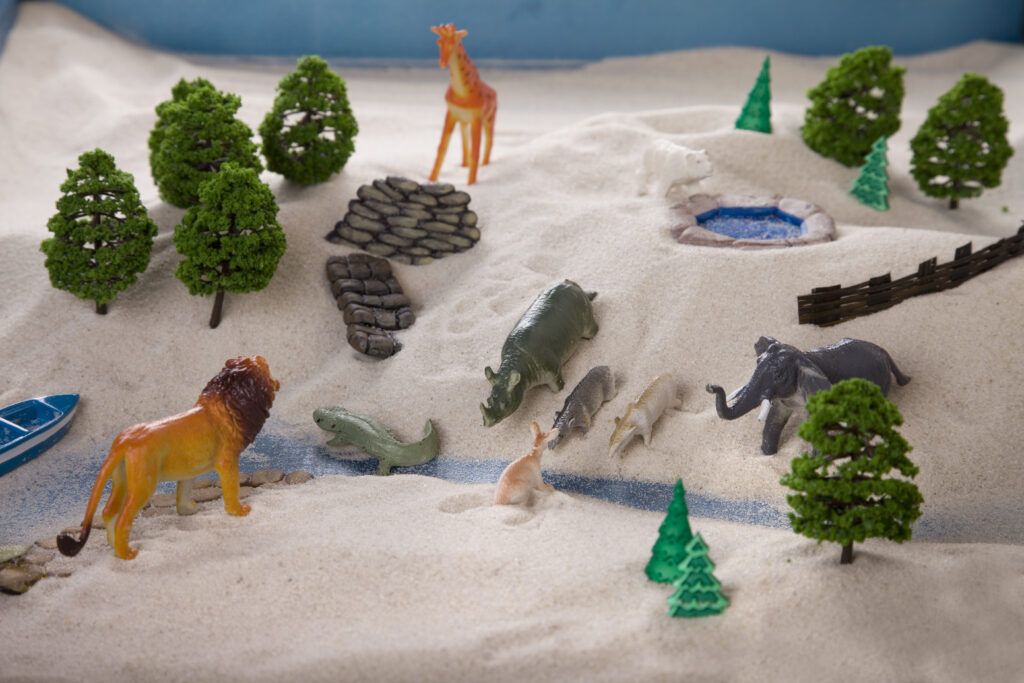
- Art: drawing, painting, colouring
- Clay and playdough
- Craft
- Creative visualisation
- Drums and music
- Games
- Masks
- Movement and dance
- Puppets
- Role play
- Sand tray with miniature ‘symbols’ *
- Therapeutic Stories
*Miniature symbols will be a wide variety of objects which will include people, animals (domestic, wild and prehistoric), insects, houses, vegetation, vehicles, mythological figures (pirates, unicorns, etc.), shells, fences and ‘treasure’.
Play and creative arts therapy for individuals
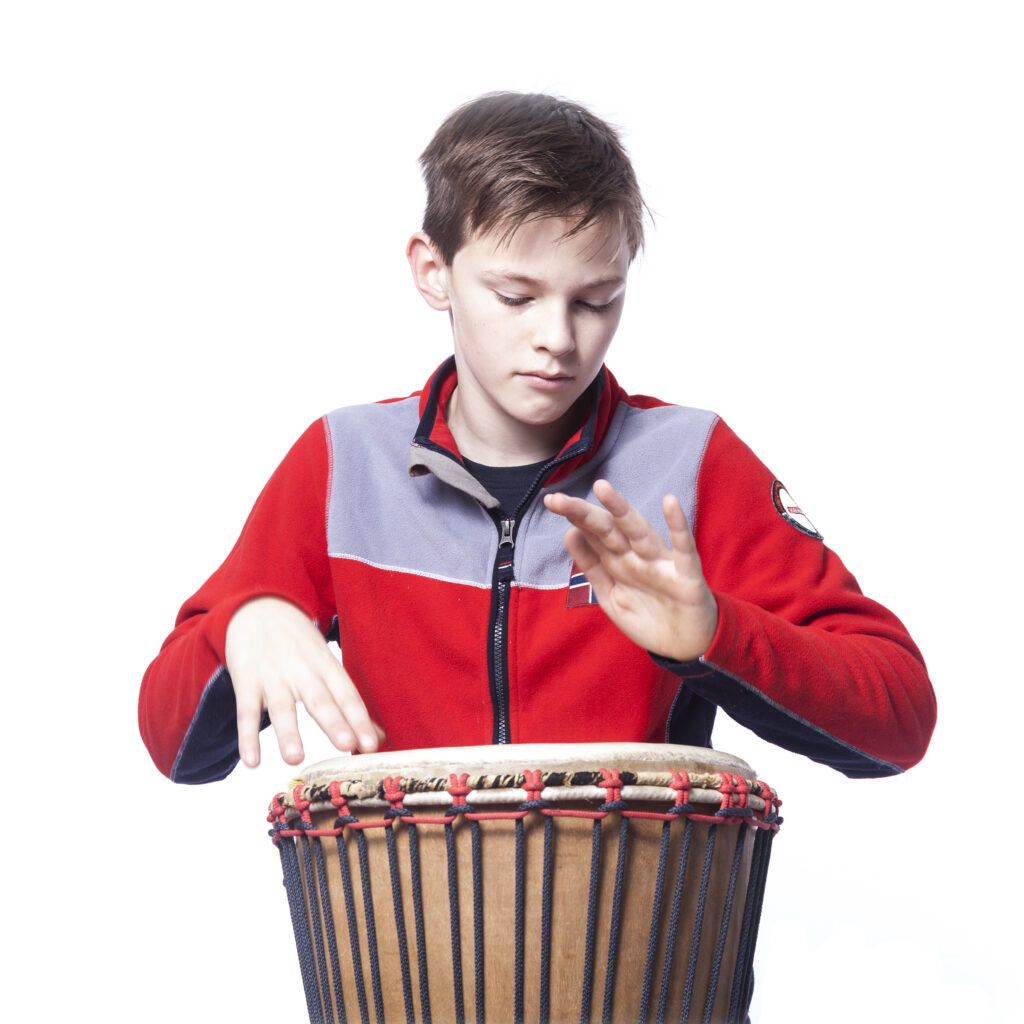
Individual children have sessions of between 30 and 50 minutes, depending on their age. The sessions will be at the same time each week and in the same room. Therapy sessions are mostly non-directive; the child can choose what they do within the session from the items available to them.
The therapist is alongside the child, observing their play, reflecting their responses and joining in if the child requests. There are a few simple rules, besides these, the child can do or say anything without guidance.
Some children may have as few as 12 sessions but many children require longer-term intervention to promote changes in ways of thinking and for these to become behavioural changes in the long-term.
Please contact me to discuss.
Play and creative arts therapy for groups
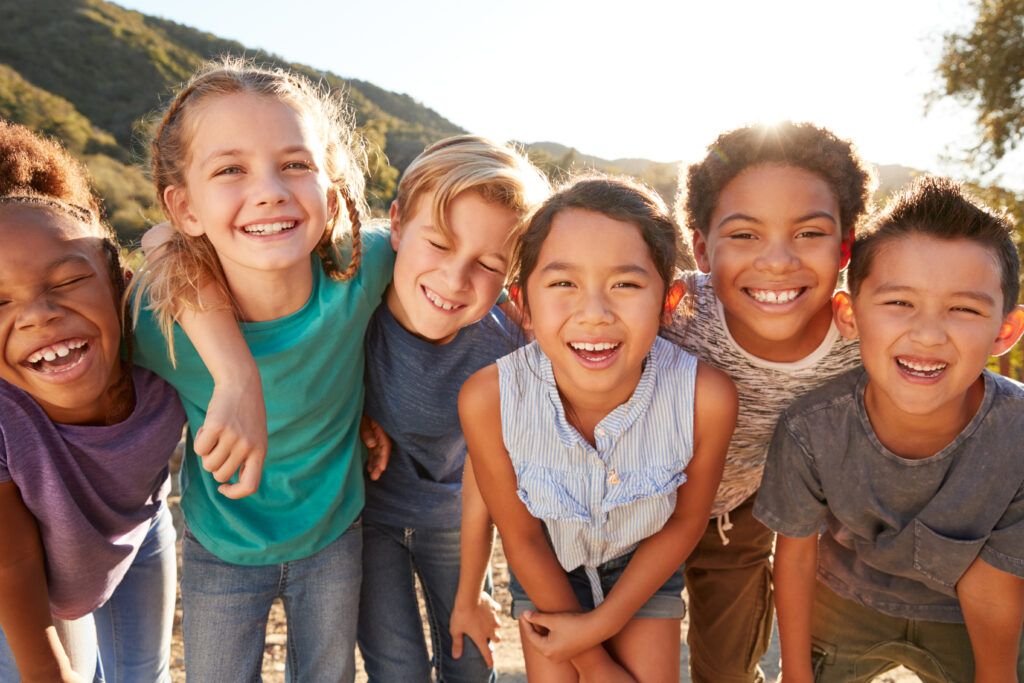
Groups of up to 4 children may work together in a block of sessions (between 6 and 10 sessions) on a theme (e.g. friendship skills). These sessions will have the same children each week. They will be at the same time and in the same room.
The therapist will take an active and directive role in group work but there will be reflective time during each session for each child.
Please contact me to discuss.
Children’s Accelerated Trauma Technique
Children’s Accelerated Trauma Technique (CATT) is a Trauma Focused CBT technique created for treating PTSD and complex PTSD in children. It is a creative, directive form of CBT (Cognitive Behavioural Therapy) which serves to reduce the symptoms of PTSD and C-PTSD. Ideally, children need to have safe relationships and safe homes for this treatment to work. The assessment for PTSD is CRIES.
I am trained in administering the CATT technique.
Please contact me to discuss.
Dyadic work with Parents/Carers or ‘Restoring Relationships’
I have trained in DDP Level One and Level Two, I also have training in attachment play for parents and carers. I offer therapeutic dyadic work with parents and carers of children with traumatic life experiences and/or difficult behaviour. Usually this ‘Restoring Relationships’ work would take at least 24 sessions. Firstly, I work with the parents/carers to understand the difficulties their child presents them with, and the emotions this may trigger in them. We will explore those responses and their own patterns of behaviour when triggered before working out better ways to ‘deal with’ the child’s behaviours in future .
Then, we work out how to recognise and then meet the child’s unmet need, understanding that a child’s behaviour is their way of communicating their needs to the adults around them.
Then, I work with the parent/carer and child together to build attachment and attunement, modelling and practicing together techniques to aid their relationship and meet their child’s needs, therein de-escalating the problematic behaviours and bringing more joy and love into their lived experience.
Finally, I ensure that the parent/carer has the tools to continue raising their child with PACE to ensure the long-term success of their relationship.
This is work which uses PACE, and is based on an understanding of attachment theory, developmental trauma, the neurobiology of trauma, attachment and caregiving, intersubjectivity theory and child development. PACE is a way of thinking and being which deepens the emotional connections in our relationships with others. When we are playful we brings enjoyment to the relationship and those within it and we build stronger bonds. When we accept another person despite their flaws we create psychological and relational safety. When we are curious about the other person in a relationship, wanting to know and understand their views, responses and behaviours we express a desire to truly know the other person more. When we show empathy we communicate that we recognise and validate the other person’s experience. Showing the empathy we feel also shows curiosity and acceptance in our empathic responses.
Please contact me to discuss.
Training for Educators (primary, secondary and early years)
I can work with schools to develop personalised training for after school staff meetings or inset sessions. These can empower staff to understand the importance of positivity and playfulness and to develop more playful ways of relating and responding to children, thereby reducing children’s stress and calming their amygdala. This in turn will lead to better behaviour and the potential for learning. All behaviour is communication. What is your behaviour communicating? What is being communicated by your pupils’ behaviour? Let’s improve the communication in your classroom.
Please contact me to discuss.
Play Work with Parents/Carers
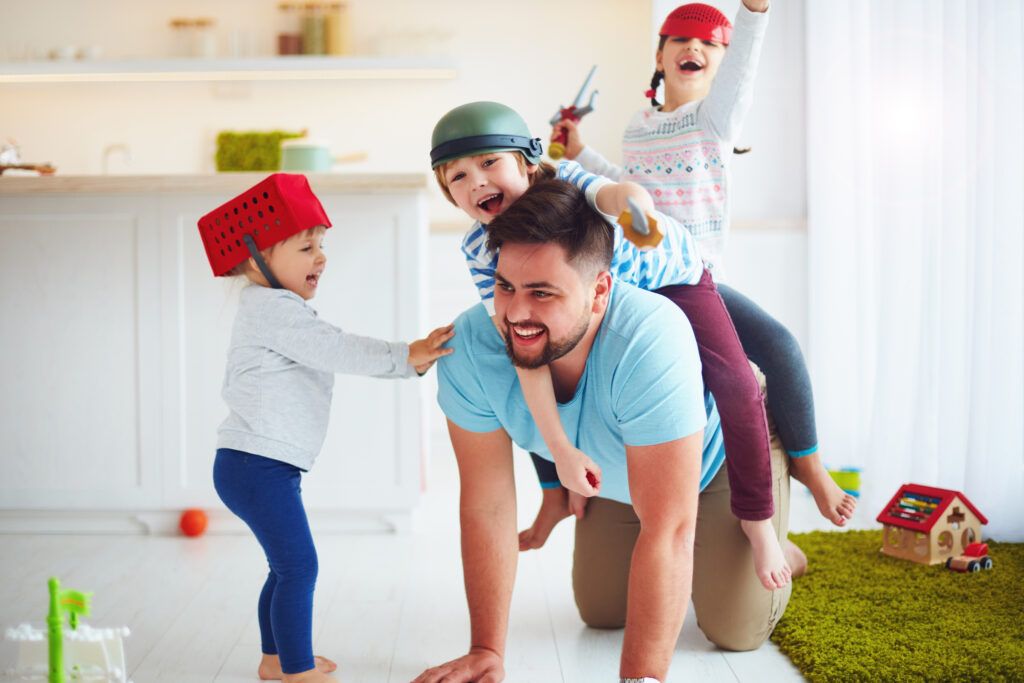
I run a short course for a key adult and their child to attend together. It can be aimed at 5-9 year olds or 10-15 year olds. It can be delivered to individual parent-child duos or to groups of up to three adults each with one child.
It is important to have one adult with one child (not both parents or more than 1 child from a family present); the aim is to strengthen the relationship between the child and the adult that is with them. For this reason, it should be the same adult and the same child for each session.
There are 8 play based sessions, each lasting up to one hour. There will be some basic attachment and relational theory shared during this time and we hope to build reflective functioning skills, thereby building attunement and attachment. There will be an initial meeting with the adult who will attend, this will prepare the adult for the sessions to come and allow an introduction and assessment. There will be a further end meeting with the adult after the last session to follow up and re-score the assessment. The commitment is for 10 sessions in total.
More about the Parent-Child sessions:
-The sessions will be at the same time, on the same day, in the same place each time. We know this helps to build attachment for children and to lessen anxiety.
-There will be informal activities and games to strengthen the adult’s relationship with the child. These will be directed by the facilitator and adapted to the needs of those attending.
-There will be stories and relaxation time together for you both to enjoy.
-There will be modelling and practice of attuning to the child, helping you to be an even better parent/carer/significant adult and have a better relationship with your child.
-There will be family-friendly research showing how children can reach their full potential and make positive behaviour choices, with your help.
-There will be chance to learn more about “what makes your child tick”, their social, emotional and brain development and how YOU play the most important part of all.
-Most importantly the sessions will be fun.
Please contact me to discuss.